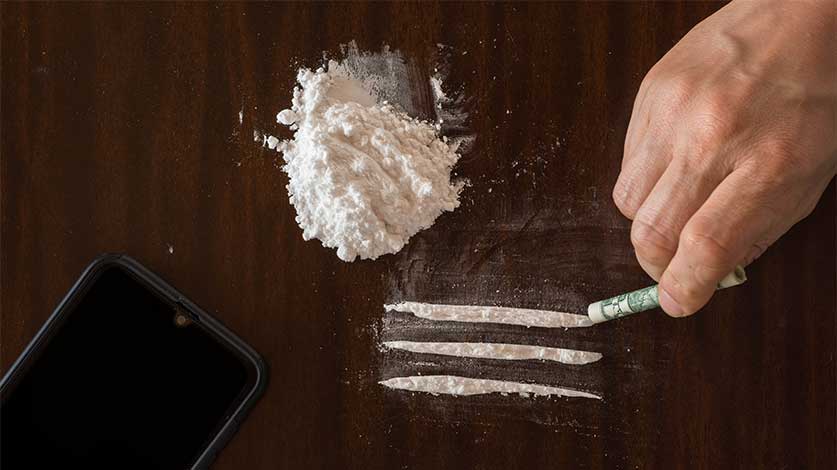Snorting Hydrocodone | Nasal Damage & Other Side Effects

Snorting hydrocodone can cause the effects of the drug, such as sedation, analgesia (pain relief), and euphoria, to rapidly occur. Snorting drugs can also cause side effects such as runny nose, sinus infections, nosebleeds, reduced sense of smell, and collapsed nasal passages.
Snorting hydrocodone, also known as insufflation, is a form of drug abuse and is not an approved method of drug use. Hydrocodone abuse can lead to an increased risk of opioid overdose, hydrocodone addiction, and other long-term health effects.
Snorting Hydrocodone
Hydrocodone products may not be legally sold in powder form. In order to snort hydrocodone powder, a person may receive hydrocodone pills from products such as Norco, Lortab, or Vicodin, crush them into powder, and snort them with a straw or other paraphernalia.
Snorting hydrocodone eliminates the digestion step for pain relievers and enters them into the bloodstream. The drug can bind to opioid receptors in the central nervous system quickly, causing the analgesic effects associated with painkillers.
Effects Of Snorting Hydrocodone
Snorting hydrocodone can cause effects such as:
- runny nose
- nosebleeds
- sedation
- impairment
- constipation
- loss of appetite
- euphoria
- nausea
- lightheadedness
These effects may be stronger compared to approved methods of prescription opioid use.
Dangers Of Snorting Hydrocodone
Snorting hydrocodone can be a dangerous method of prescription drug use. The potential health risk may outweigh the temporary positive effects of snorting.
Increased Risk Of Overdose
It can be difficult to track inhaled doses of hydrocodone. A person may unknowingly snort large amounts of the drug, or underestimate the fast-acting effects of inhaled hydrocodone, increasing the risk of overdose.
Opioid overdoses can cause respiratory depression, clammy skin, and a loss of consciousness. Victims may make a gurgling sound after a hydrocodone overdose, which may be a sign that they need immediate attention from medical professionals.
Nasal Damage
Snorting hydrocodone can damage nasal blood vessels, mucous membranes, and nasal tissue itself. Over time, the action of snorting can cause long-term damage to the nose and roof of the mouth. Side effects have been observed in patients who snort drugs, including:
- nosebleeds
- sinus infections
- reduced sense of smell
- septum perforation or collapse
- necrosis of nasal and oral tissue
Inhaled hydrocodone powder can also reach and inflame the lungs, resulting in an immune system disorder known as hypersensitivity pneumonitis.
Substance Use Disorder
Snorting hydrocodone can rapidly change your brain’s chemistry and reinforce behaviors of substance abuse. Over time, the body may become dependent on hydrocodone and may cause hydrocodone withdrawal symptoms if deprived.
Uncontrolled drug abuse, dependency, and withdrawal can be aspects of an overarching substance use disorder (SUD).
Treating a SUD may require comprehensive substance abuse treatment to address physical and mental health, manage cravings, and detox the drug from a patient’s system.
To learn if our opioid addiction treatment program works for you or your loved one, please contact us today.
- Food and Drug Administration — Vicodin Drug Label https://www.accessdata.fda.gov/drugsatfda_docs/label/2006/088058s027lbl.pdf
- National Library of Medicine: StatPearls — Hydrocodone and Acetaminophen https://www.ncbi.nlm.nih.gov/books/NBK538530/
- SpringerLink — Nasopharyngeal Necrosis After Chronic Opioid (Oxycodone/Acetaminophen) Insufflation https://link.springer.com/article/10.1007/s13181-012-0217-3

